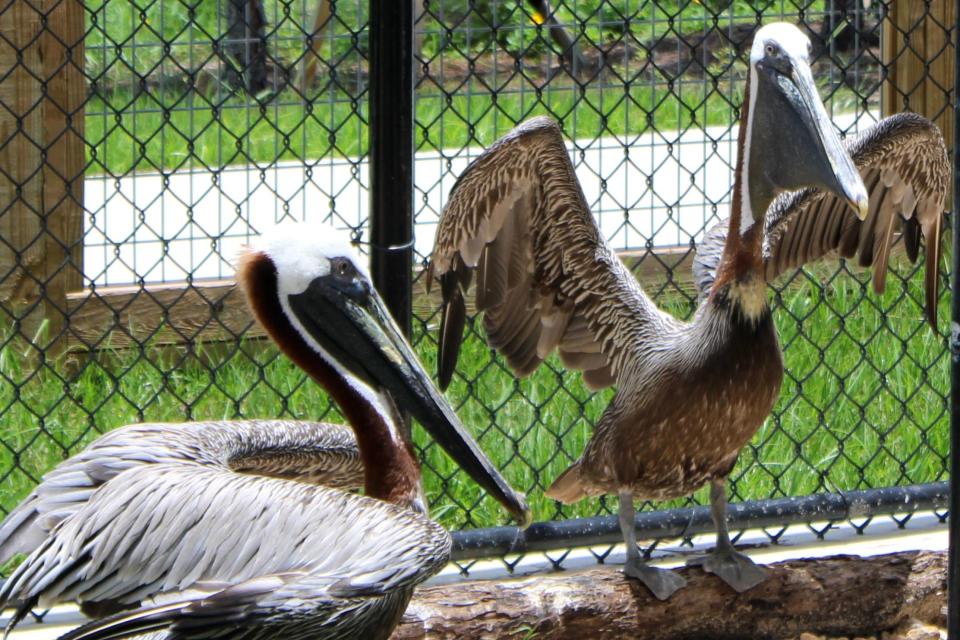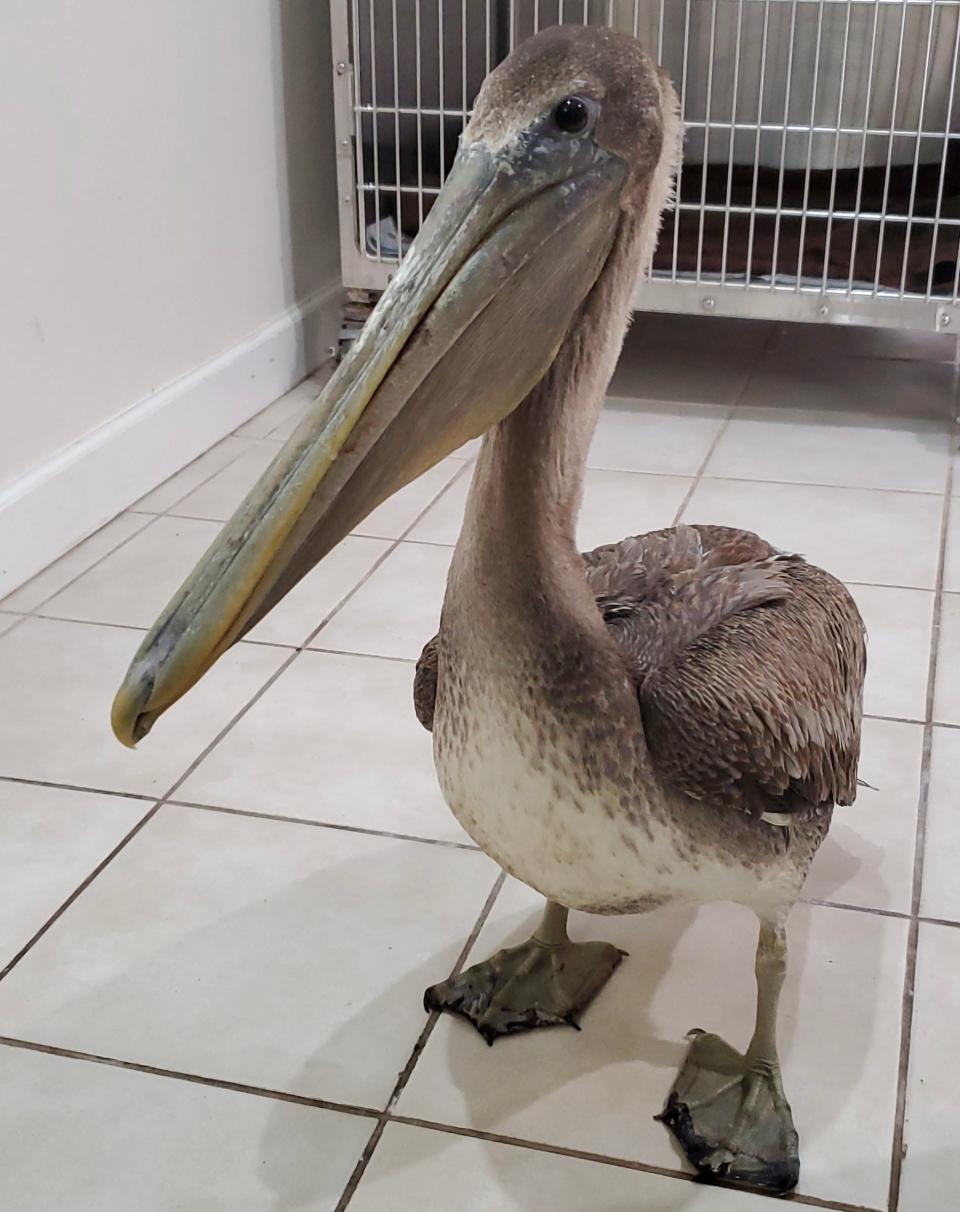Meet Busch Wildlife's 'snowbird': Pelican who beat frostbite marks 3 years at sanctuary
JUPITER FARMS — Three winters ago, a baby brown pelican navigated the icy Connecticut River as she fought hypothermia and her feet became frostbitten.
Today, that "snowbird" — who goes by the name Arvy — is thriving in the Florida warmth at Busch Wildlife Sanctuary in Jupiter Farms, thanks to people who plucked her out of the frigid waters and ushered her to safety.
“Arvy has an interesting story,” said Amy Kight, Busch Wildlife Sanctuary’s executive director. “Generally, brown pelicans will migrate. Arvy either didn’t realize this or forgot, so she stayed up in Connecticut on a frozen-over pond.”
Members of the Connecticut Audubon Society rescued Arvy and took her to a small wildlife facility in Connecticut, but its staff couldn’t perform the surgeries needed on her frostbite injuries. They asked Busch Wildlife to take her in, and its staff immediately said yes.
Illegal pet trade: Busch Wildlife's latest addition escaped and greets visitors with a soft 'Meow'
Baby pelican travels 12 hours on a small kit plane from Connecticut to Jupiter
The next biggest challenge the nonprofits faced was figuring out how to bring Arvy south in a cost-efficient way.
The solution which arose was unexpected, Kight said. A mother-daughter pilot team volunteered to fly Arvy from Connecticut to Jupiter in a two-seater single-engine RV-12 plane, which became Arvy’s namesake.
The kicker was that the daughter’s high school engineering class built the plane. The trek took a grueling 12 hours, with four stops for fuel in between.
“Arvy kind of went viral (because) she didn’t use her wings to fly south for the winter,” Kight said. “When I found out the full story behind it, I was like, ‘Wait a minute! What happened?’ ”
Arvy underwent multiple surgeries to remove the frostbitten parts of her feet when she got to Busch Wildlife in February 2021. The sanctuary’s hospital director also gave her special food, cold laser therapy to stimulate healing and medications to treat her damaged respiratory system.
Arvy lost about 30% of her webbed feet, but she waddles around her enclosure at the sanctuary just fine with only a slight limp. She can also fly and swim without a problem.
How north county is growing: 16-story towers with 595 apartments proposed for Lake Park
“She was constantly around people, so she has a puppy dog personality because of all she went through when she was young,” Kight said. “She has some long-term disabilities, so she’s been with us ever since.”
Arvy moved into her habitat at Busch Wildlife on June 4, 2021, when she officially became a permanent resident. Kight recalls being especially worried for her when she first arrived.
“Frostbite is a weird thing,” Kight said. “We would remove what we saw, and then more tissue would start to die off. It was getting to that point where we couldn’t go back further and give her a decent quality of life.”

Arvy is a resilient bird who has risen above her challenges. She adores her caretakers at Busch Wildlife and comes running over to them the minute they enter her enclosure, often to feed her fish.
She also acts as a surrogate mother to a juvenile pelican named Beans with whom she shares space.
“When you have an older animal with a younger one, they show them the ropes,” Kight said. “They learn to follow each other and mirror behaviors. Arvy is teaching Beans how to be successful in a new environment.”
Frostbite common problem for birds who neglect migration

Pelicans and other birds who spend much of the year in the South occasionally suffer from frostbite.
Busch Wildlife typically rescues a few every year because they stayed too long up north in the winter. The number of cases they treat fluctuates depending on weather trends, Kight said.
Birds neglect to fly south in the winter for numerous reasons, she said.
It could be because someone nearby is feeding them and they become reliant on that food source, they simply lack the instinct or they get caught off guard by the cold and are too dehydrated and weak to journey south.
“I always say that Arvy was like a little kid who didn’t really know what to do,” Kight said.
Maya Washburn covers northern Palm Beach County for The Palm Beach Post, part of the USA TODAY Florida-Network. Reach her at mwashburn@pbpost.com. Support local journalism: Subscribe today.
This article originally appeared on Palm Beach Post: Snowbird: Pelican triumphs over frostbite in Jupiter at Busch Wildlife

